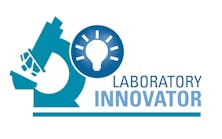News
FDA issues recall notice for Siemens MicroScan Synergies plus and MicroScan RapID/S plus Negative Panels. The U.S. Food and Drug Administration has issued a Class I Recall—False Susceptible and False Intermediate Results for the Siemens MicroScan Synergies plus and MicroScan RapID/S plus Negative Panels. These panels have been reporting false susceptible and false intermediate results for imipenem and meropenem antimicrobial susceptibility testing when using the MicroScan WalkAway System. This defect may lead to treatment with an inappropriate antibiotic or a delay in initiating appropriate therapy. The recall covers 78,020 panels distributed in the United States between July 11, 2011, and August 2, 2013. The affected Material Numbers / Part Numbers are as follows: Synergies plus Negative Urine Combo 1 – 10444745 / B1025-106; Synergies plus Negative Combo 2 – 10444747 / B1025-108; Synergies plus Negative Breakpoint Combo 7 – 10444748 / B1025-109; Synergies plus Negative Urine Combo 2 – 10444749 / B1025-112; Synergies plus Negative Urine Combo 5 – 10483101 / B1025-115.
Siemens sent an Urgent Field Safety Notice, dated August 21, 2013, to all affected customers. The letter identified the defective products, problem, and actions to be taken. It instructed customers to suppress all reporting of sensitive and intermediate results for imipenem and meropenem. Siemens also recommends that customers consider the need to review previous test results and conduct patient follow-up and/or repeat testing.
Healthcare professionals and patients are encouraged to report adverse events or side effects related to the use of these products to the FDA’s MedWatch Safety Information and Adverse Event Reporting Program.
Genomics
NIH program explores the use of genomic sequencing in newborn healthcare. Can sequencing of newborns’ genomes provide useful medical information beyond what current newborn screening already provides? Pilot projects to examine this question are being funded by the National Institutes of Health. Awards of $5 million to four grantees have been made in fiscal year 2013 under the Genomic Sequencing and Newborn Screening Disorders research program. Each award will consist of three parts: genomic sequencing and analysis; research related to patient care; and the ethical, legal and social implications of using genomic information in the newborn period.
The awards will fund studies on the potential for genome and exome sequencing to expand and improve newborn healthcare. Genomic sequencing examines the complete DNA blueprint of the cells, and exome sequencing is a strategy to selectively sequence exons, the short stretches of DNA within our genomes that code for proteins.
Programs currently screen almost all of the more than four million infants born in the United States each year. Until now, the testing of DNA has not been a first-line newborn screening method, but it has been used to confirm the screening results of some disorders, such as cystic fibrosis.
Infectious Disease
Rapid diagnostic tests decrease waiting time for drug-resistant TB patients. Results of a new study suggest that three new diagnostic tests could each be used to successfully diagnose drug resistance in tuberculosis (TB) patients in significantly less time than that taken by the current method.
Drug susceptibility tests are carried out in people with active TB to identify which drugs the TB bacteria are sensitive or resistant to. It is essential that these are identified as early as possible so the patient can be provided with the most effective treatment and the most rapid cure, and to prevent the development of even more drug-resistant TB. Traditional methods of drug-susceptibility testing can take from 21 days to three months because a sputum sample must first be collected and cultured.
Researchers analyzed three new tests: pyrosequencing, a DNA sequencing technique; the HAIN line probe test, a commercial test that detects genetic mutations in the bacteria; and the microscopic observation drug susceptibility (MODS)test, which screens samples under the microscope. They performed the standard drug susceptibility tests alongside the three new tests and evaluated drug resistance to five drugs. Results showed that the MODS test took 15 days to complete, the pyrosequencing took eight days to complete, and the line probe assay took five days. All three tests produced the same results as standard testing.
Diabetes
Genetic variant linked with kidney failure in diabetic women but not men. A genetic variant on chromosome 2 is strongly linked with kidney failure in diabetic women but not in men, according to a study appearing in an upcoming issue of the Journal of the American Society of Nephrology. The findings may help explain gender-specific differences in kidney failure, as well as why some diabetic women are prone to developing kidney failure.
Researchers in Finland identified a genetic variant on chromosome 2 that was linked with kidney failure in women with type 1 diabetes. Additional analyses revealed that it was also linked with kidney failure in diabetic women in the United Kingdom, the United States, and Italy. Diabetic women with the risk variant had a nearly two-fold increased risk of developing kidney failure compared with diabetic women who did not have the risk variant.
Education
The American Society for Clinical Pathology annual conference in Chicago offered provocative educational sessions September 18-21—and the editor of MLO was pleased to attend four extremely interesting ones: “Shifts in Pathology Informatics,” moderated by Mark Tuthill, MD, FASCP, Division Head for Pathology Informatics at Henry Ford Health System in Detroit (plenary session); “Your Patients at Risk: Infection Transmission Associated with Point of Care Testing and the Laboratory’s Role to Eliminate Risk,” presented by Sharon Markham Geaghan, MD; “Without Informatics, Lab Quality Falls Short,” presented by Raymond D. Aller, MD, FASCP; and “Drugs of Abuse Testing: Promise and Pitfalls,” presented by Matthew D. Krasowski, MD, FASCP. MLO hopes to publish in upcoming issues more extended articles related to these and other thought-provoking sessions that were presented at the ASCP conference.




